First Sale Stories: Kat Richardson, "Greywalker"
Lynda: What’s the name of your first book?
Kat: Greywalker
Lynda: When was it published?
Kat: October 3, 2006
Lynda: Which publishing house?
Kat: Roc/Penguin
Lynda: What’s it about?
Kat: Female PI in Seattle who dies for a few minutes and comes back to discover she can walk in the realm of "things that go bump in the night."
Lynda: What was the inspiration for the book?
Kat: An old British TV series called "Randall and Hopkirk, Deceased" ("My Partner the Ghost" in the US) about a dead PI who won't stop trying to help his live partner solve crimes. And I thought "Why not a PI FOR ghosts, instead of a PI who IS a ghost"?
Lynda: Is it part of a series?
Kat: Yes.
Lynda: What do you like most about your main characters?
Kat: I like that they are tough, but good to others. They aren't selfless, but they all try to do "the right thing." Well... most of them. Some are right bastards.
Lynda: What’s your favorite aspect of the book?
Kat: I enjoy learning more about the history and people of Seattle so I can include the details of the city in the story. It's fun to discover a new story about my town, or find a historic character I can pop into my ghostly Seattle.
Lynda: How long have you been writing fiction?
Kat: Since I was seven or eight, but I didn't do anything professionally with it until I was in my late 30s.
Lynda: Is this your first paranormal manuscript?
Kat: Yes.
Lynda: Is paranormal your main focus?
Kat: Not really. I like Mysteries and SF, so I'll grab onto anything that plays well with those and paranormal fits pretty well.
Lynda: What attracts you about the paranormal characters you write about?
Kat: Their odd views of the world. I like to experiment with their outlook, since they must interact with the world differently than a normal, mortal human would.
Lynda: How long did it take to sell your book, from the time you finished your manuscript?
Kat: Depends on how you count it. I revised and tried for 4 years before I found an agent, but once I had an agent, it took about a year of additional revisions and submissions to sell the book.
Lynda: Did you have an agent when you sold your first book?
Kat: Yes.
Lynda: Do you recommend that a pre-published writer focus on finding an agent first, or do you think it’s OK to submit directly to the publisher?
Kat: If the writer is interested in a commercially successful career, definitely concentrate on getting an agent. Good agents will get writers a better deal than they can get by themselves, and have access to editors un-agented writers cannot reach.
Lynda: Thinking about the notion of “It’s always darkest before the dawn,” what was the lowest point in the process for you? Was there a time you almost gave up?
Kat: I gave up several times, but I kept coming back and in April 2004, I finally decided to give it one last shot and quit if it didn't work out--but it had to be my very best shot, my very best work and no token actions. It worked. It often is darkest just before you kick yourself in the seat of the pants and light a candle.
Lynda: You don’t have to mention numbers, but did you get a nice advance?
Kat: Good by current standards for a first novel by an unknown: $7,500 per book on a 3-book contract. Not "Whoopee! Let's buy a yacht!" But "Oh, boy! We can go on a decent vacation, for once, and pay off some bills."
Lynda: What was the process of revisions/rewrites like?
Kat: Long and painful. I hated having to make the changes, but my editor and agents were able to make suggestions for improvement and explain why they felt they were necessary, how they improved the book, and what other opportunities were made by the changes--good feedback and communications made the process much easier. I still don't enjoy it, though, and I'm currently revising Book 2.
Lynda: Did your agent suggest changes?
Kat: Yes. Twice--he analyzed the book and pointed out weaknesses, made suggestions for changes to improve the work and make it more commercially viable, not just to change for change's sake.
Lynda: What was it like, working with the editor at your publishing house?
Kat: I really liked it. I've worked with editors and as an editor before, so I understood her comments. Anne is also very good at explaining WHY as well as WHAT needs to be changed and making suggestions for HOW, as well. I didn't feel dictated to, which was important. I feel like we work together on the books, as a team.
Lynda: Do you have any words of wisdom for us regarding rewrites/revisions?
Kat: Pick your battles. Some things aren't worth fighting over. A good editor has a feel for the market and recognizes what HAS to change to make the work saleable, versus what she merely WANTS to change for other reasons. The editor wants your book to sell. She's not looking to "ruin" your prose for her own ego's sake. Ask her about changes you are uncomfortable with and discuss the reasons and options. Have good communications with your editor and copyeditor. No one's prose or plot is so perfect it can't take some editing, so be open-minded. Stick to your guns when you have to, though. If something is just NOT negotiable, say so, but politely--word travels fast in publishing and there's no point in making an enemy.
Lynda: Were there any surprises for you about the contract you signed?
Kat: I was surprised how many rights my agents retained for me. I expected to have to give up more than I did.
Lynda: Do you get a lot of help marketing your book, or do you have to do it yourself?
Kat: Mixed. The publisher did a lot of things I could never have done, like producing and putting chapbooks into convention "goodie bags" and getting in touch with big reviewers, inviting me to publication parties if I was at a convention so I could meet industry folks. But I also did my part, going to conventions, chatting up booksellers, making and distributing bookmarks, getting to know other writers, and potential readers. I placed an ad in a strategic small publication and I also spent some time developing local contacts with publications, radio shows, writers groups, and other venues where my book could be discussed, reviewed, or sold by people who felt positive about me and would therefore say nice things about my book.
Lynda: What’s your best marketing advice?
Kat: Be friendly and meet lots of people. Get business cards. Follow up. Be professional and polite to other members of the industry, but don't be pushy. Get to know other writers--they'll help you a lot.
Lynda: Did you have input about your cover?
Kat: A little. I was asked for suggestions, but I don't think they were very helpful--I know I have no artistic ability at all.
Lynda: Have you done any book signings? If so, what were they like?
Kat: Yes, I've done two, now. The first one was very informal and mobbed and silly and we all had a good time just hanging around talking about the book. The second was much more "normal," with a table and books and people came up to the table for signed copies. A lot of chatting and smiling at both, though. And a lot of people just standing around looking at me--which was kind of disconcerting.
Lynda: If you could go back and do something differently, what would that be?
Kat: I'd have tried harder sooner.
Lynda: What are your writing plans for the future?
Kat: More books in this series, get some short stories out there, start another series that's a little harder-edged, and get my graphic novel collaboration back on track. And go sailing.
Lynda: What advice would you give to all the pre-published writers out there?
Kat: Write, write, write! Never pull your punches when you write, and hit as hard as you can with every word. And play nice with others once you hit it big.
Lynda: How can readers find out more about you?
Kat: I have a website (http://www.katrichardson.com/) and a blog (http://katrich.wordpress.com/) and I try to keep them up to date. I'm also very chatty in person and I attend my local MWA meetings regularly.
Thanks for the chance to answer your questions, Lynda. I'm looking forward to hearing more about YOUR book, soon.
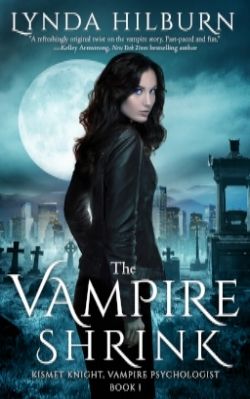
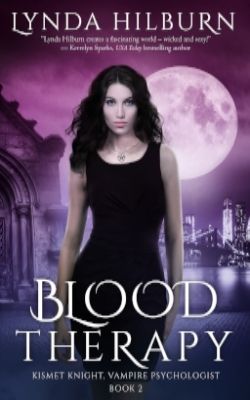
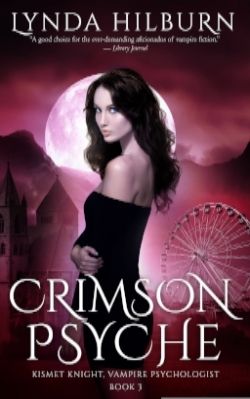
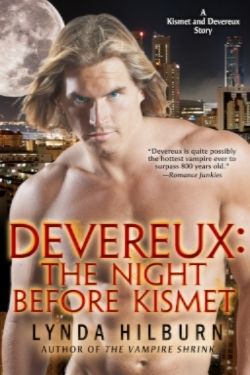

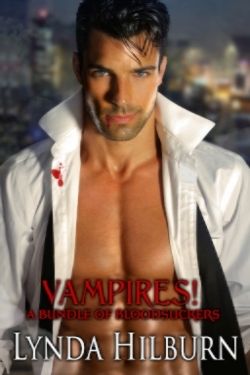
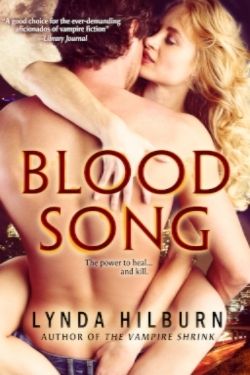
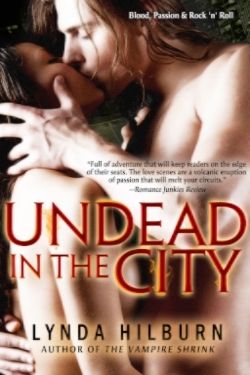
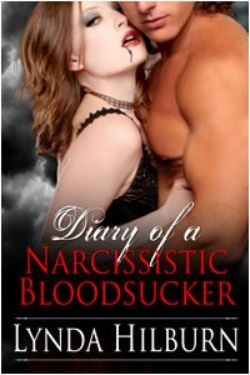

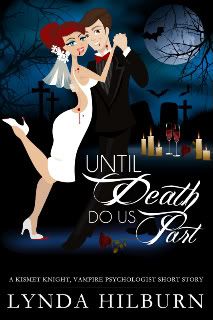
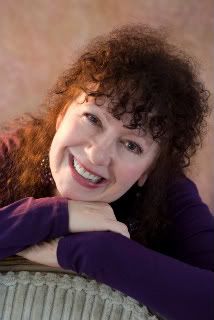
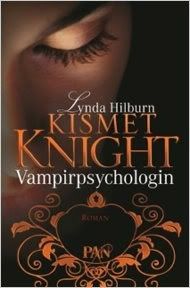
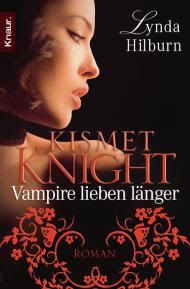
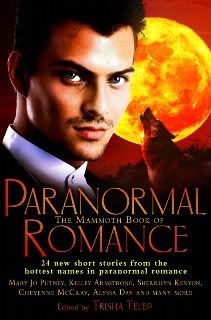
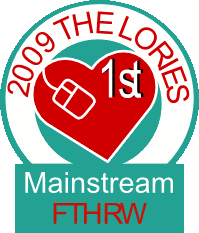




0 Comments:
Post a Comment
<< Home